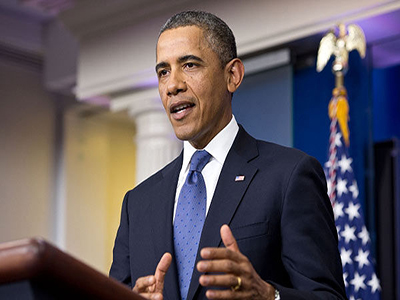
I wonder whether America’s young people who voted in such large numbers for Barack Obama in 2008 and again in 2012 understand how thoroughly they’ve been betrayed by our 44th President. By virtually every economic measure, our recovery from what has been termed the Great Recession of 2008-2009 has been perhaps the weakest on record. In my opinion, President Obama bears significant responsibility for this. He has been a relentless critic of the business community and the most blatant class warfare president in my lifetime. Entrepreneurs who invent new products and processes that enrich millions of lives are cast by this President as greedy, socially irresponsible villains who do not do their ‘fair share’ for America. Economics is a very straightforward science. As such, it provides an utterly crystal-clear lens for examining the impact of such a President.
Economic theory, common sense, and hundreds of generations of human history, testify to a well-understood truth: incentives matter. If you reduce someone’s incentive to work hard and be productive, that individual will, in fact, reduce his work effort and resultant productivity. Raising taxes on people who create jobs inevitably will reduce the number of jobs created. Imposing onerous new regulations on business owners that raise the cost of doing business reduce the expected return from their entrepreneurial actions and, in turn, reduce their job creating activity. The only question one might have in this regard concerns the size of these adverse impacts. But the fact that reducing incentive for entrepreneurial activity reduces job creation is simply indisputable.
The harm to young people from President Obama’s broad and consistent assault on the business community is both general and specific. The resulting under-performing economy produces fewer jobs at all levels, including entry-level jobs that get young people started off on their careers. Older workers, worried about their economic circumstances, delay retirement, reducing the number of advancement opportunities for younger workers. More insidious, however, are specific policy initiatives, such as Obamacare. Young people typically are among the healthiest of individuals. Consequently, their demand for health care is relatively low. This is fortuitous, because health care is expensive and young people do not, as a general rule, have much money. But, under threat of heavy fines, Obamacare requires young people to purchase health insurance, whether they need it or not. In effect, this forcibly re-distributes wealth away from the younger, healthier, but poorer individuals to older, less-healthy, richer individuals. In addition, Obamacare requires firms with a threshold number of full-time employees to provide health insurance for their employees. This creates incentives for firms to restrict hiring in two ways: (1) keep the number of employees below the legal threshold imposed by Obamacare, and (2) convert full-time positions to part-time positions, for which they are not required to provide health (or other) benefits at all. In a dismal economic recovery, these may be the best jobs that new entrants to the workforce are offered.
There is a popular saying that reflects what in Economics is known as the Law of Unintended Consequences: be careful what you ask (or, in this case, vote) for……
